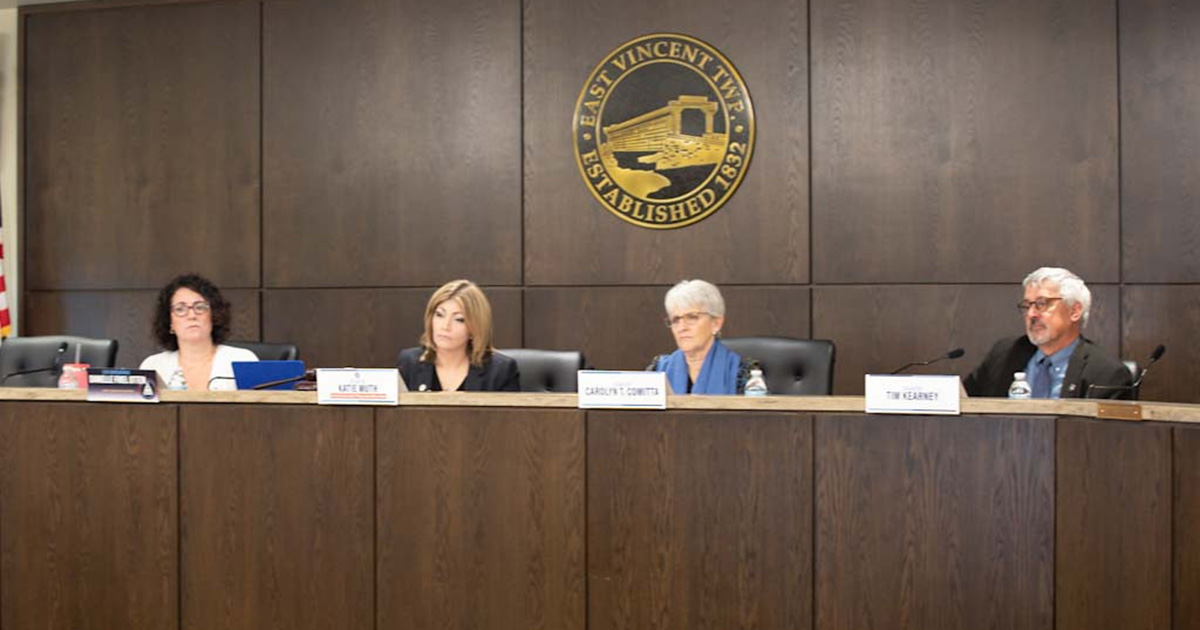
EAST VINCENT, December 5, 2023 – State Senator Katie Muth (D-Chester/Montgomery/Berks), chair of the Pennsylvania Senate Democratic Policy Committee, joined Senator Carolyn Comitta (D-Chester), Democratic Chair of the Senate Environmental Resources and Energy Committee, to co-host a public hearing yesterday on the proposed development of hydrogen infrastructure in Pennsylvania.
The hearing, held at the East Vincent Township Building in Spring City, focused on potential environmental impacts, community safety implications, and the various risks and challenges associated with the development and reliance on hydrogen as an energy source.
“No matter what energy source we are talking about, public health and safety must be the first and primary consideration in any development. Pennsylvania residents deserve a safe and healthy place to live, and all levels of government have an obligation to protect the public, not enhance the profits of corporations. Many questions remain unanswered regarding how the public’s money will be spent on these proposed concepts involving hydrogen energy. Further, yesterday’s hearing showed us that Pennsylvania does not have the necessary regulations or laws in place to protect residents from harm by the current fossil fuel energy operations,” Muth said. “We need decision makers to include emergency responders and the public in any plans that will impact their lives and livelihoods and ensure transparency regarding how the people’s money is being spent. We need climate action and public protections, not another harmful human experiment that only benefits fossil fuel corporations who already get massive subsidies via taxpayer dollars and continue to loot and pollute our state.”
In October, President Joe Biden announced seven regional clean hydrogen hub projects, including two at least partially in Pennsylvania, would receive $7 billion in Bipartisan Infrastructure Law funding to accelerate the domestic market for low-cost, clean hydrogen across the country.
“Hydrogen hubs are coming and hydrogen may be part of our clean-energy transition, especially in hard-to-decarbonize sectors. However, any approach, including hydrogen, must meet environmental, economic, sustainability, environmental justice, and public health and safety standards,” Comitta said. “Yesterday’s hearing shed light on these and other factors when it comes to the role of hydrogen in transitioning from emissions and building a clean energy economy.”
The two prospective hydrogen hubs in Pennsylvania include the Mid-Atlantic Hydrogen Hub (MACH2) based in Southeastern Pennsylvania, Delaware and New Jersey which was awarded up to $750 million. The second project, the Appalachian Hydrogen Hub (ARCH2) was awarded up to $925 million and is proposed in West Virginia, Ohio and Southwestern Pennsylvania. Both hydrogen hubs currently are in Phase 1 of the H2Hubs program, the detailed planning phase, and are estimated to stay there for 12 to 18 months.
“This hearing raised significant safety concerns about using existing pipeline infrastructure for hydrogen distribution in Pennsylvania and exposed the fossil fuel industry’s intent to use hydrogen as a distraction tactic to delay our transition to renewable energy,” Senator Tim Kearney (D-Delaware) added. “We need to focus all of our attention on the most safe and cost-effective solutions for de-carbonizing our economy.”
According to testimony submitted by MACH2, the MACH2 hub is proposed to include 77-82% green hydrogen projects with the balance being 15-20% pink hydrogen powered by nuclear energy and one proposed orange hydrogen project utilizing methane emissions currently being flared from the City of Philadelphia wastewater treatment facility. They indicated that MACH2 will not include any fossil fuels.
“If implemented safely and correctly, green hydrogen technology has the potential to be an important part of our clean-energy transition for hard-to-decarbonize sectors like steel and cement manufacturing, long-haul transportation, and aviation,” said state Rep. Danielle Friel Otten (D-Chester). “But without adequate regulatory requirements, oversight, or scrutiny, hydrogen production also has the potential to increase carbon dioxide and methane emissions, jeopardize our clean groundwater supply, and endanger our communities. We need to establish a responsible and forward-thinking regulatory framework that prioritizes public health, safety, and consumer protection and positions our commonwealth as a true leader in the clean-energy landscape.”
Green hydrogen, which will be the focus of MACH2, is when the energy used to power electrolysis comes from renewable sources like wind, water or solar. Blue hydrogen, which will be generated at ARCH2, is hydrogen produced from natural gas with a process of steam methane reforming, where natural gas is mixed with very hot steam and a catalyst.
Participants in the hearing included Nick Cohen, President & CEO, Doral Renewables; Dr. Robert Howarth, Professor of Ecology & Environmental Biology, Cornell University; Tammy Murphy, Advocacy Director, Physicians for Social Responsibility Pennsylvania; Megan McDonough, Pennsylvania State Director, Food and Water Watch; Sean O’Leary, Senior Researcher, Ohio River Valley Institute; and Karen Feridun, founder, Better Path Coalition.
In addition to the participants in yesterday’s hearing, the Pennsylvania Public Utility Commission, the Team Pennsylvania Foundation, and MACH2 each provided written testimony to the Committee.
All submitted testimony from the policy hearing and the full video is available at SenatorMuth.com/Policy.
# # #
Testimony
Panel 1: Green Energy Supply
Panel 2: Public Health & Safety Implications
- Dr. Robert Howarth, Professor of Ecology and Environmental Biology – Cornell University
- Tammy Murphy, Advocacy Director – Physicians for Social Responsibility
- Megan McDonough, Pennsylvania State Director – Food & Water
- Sean O’Leary, Senior Researcher – Ohio River Valley Institute
- Karen Feridun, Co-Founder – Better Path Coalition
Additional Testimony
